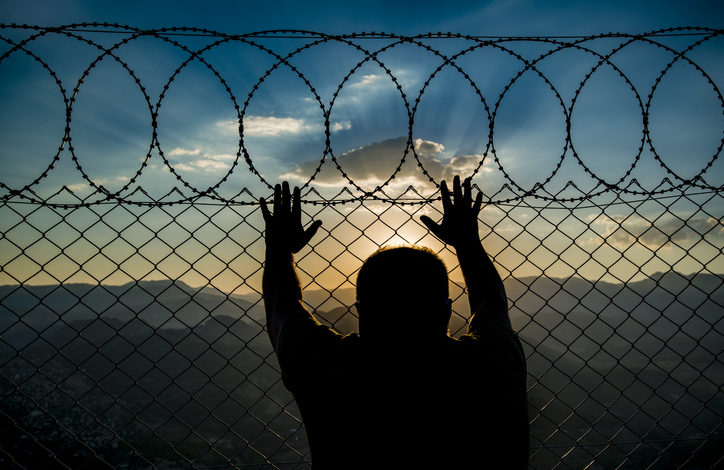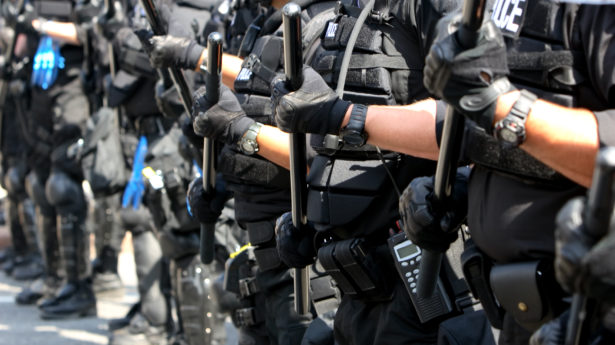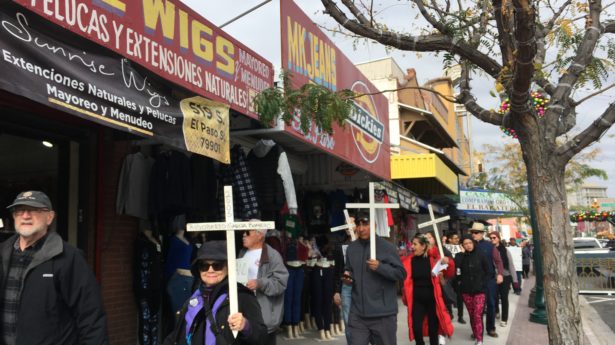The Unitarian Universalist Service Committee advances human rights through grassroots collaborations.
3 Ways to Take Action This International Migrants Day

By on December 18, 2018
In February 2001, the world’s nations came together to mark December 18 as International Migrants Day. Their purpose, as they put it at the time, was “to ensure respect for the human rights and fundamental freedoms of all migrants,” which for far too long had gone unprotected and unrecognized across the globe.
Nearly 20 years later, these words are a chilling reminder of how far our governments have strayed from these commitments. At our country’s borders and so many other places in the world, the human rights and fundamental freedoms of migrants are still in profound jeopardy.
Our hearts broke this week when we learned of the death in U.S. custody of Jakelin Caal Maquin, a seven-year-old Guatemalan child who died of thirst and exhaustion after crossing the U.S.-Mexico border with her father. She is among the thousands of people who have perished in the borderlands of heat and exposure in recent years, because our government has invested in militarizing and closing down the border, rather than opening avenues for protection. These U.S. policies have often forced migrants to attempt crossings in increasingly remote and dangerous parts of the desert, putting their lives at risk.
In some cases, U.S. border officials have even sabotaged water supplies left for migrants in the desert – water that could have saved the lives of children like Jakelin. A 2018 report by our partners at No More Deaths, published with UUSC’s support, documented the intentional destruction of 3,000 gallons of water, and included video of U.S. Border Patrol agents deliberately kicking over water jugs that had been left for migrants.
These injustices endanger the most basic of human rights – including the right to life. In order to halt these deadly policies and uphold human rights and fundamental freedoms, here are three ways you can take action this International Migrants Day:
1. Tell Congress to invest in programs that uphold human rights, rather than more deadly border militarization.
Jakelin’s death has underlined once again that increased border militarization has deadly consequences – including for children. Nevertheless, Congress is considering spending packages this year that would expand funding for detention, deportation, prosecution of immigrants, and physical barriers along the border – in some cases to the tune of several billion dollars.
These are not abstract dollars and cents. They have real implications for people’s ability to live in safety and freedom. As Congress debates measures to fund the government before its December 21 deadline, contact your legislators to tell them to place the value of human life first.
2. Help end the prosecution of humanitarian aid at the border.
When No More Deaths published its report in January 2018, U.S. border agents reacted almost instantly. Within hours of the report’s release, a No More Deaths aid volunteer, Scott Warren, was arrested for providing humanitarian assistance to undocumented migrants. Since his arrest, evidence has mounted that he was targeted as retaliation for No More Deaths’ report.
This deeply disturbing prosecution is an effort to criminalize life-saving humanitarian assistance to human beings, simply because they are undocumented. If these charges are allowed to stand, they will make it even harder for migrants to access the aid they need to survive, and more children will die of thirst and exposure.
For these reasons, No More Deaths is asking us to call the U.S. Attorney’s office in Arizona this International Migrants Day to remind them that humanitarian aid is never a crime.
3. Help us #ShutDownTornillo.
Children from Central America like Jakelin are being detained in increasing numbers in the United States, despite explicit legal requirements protecting the rights of immigrant children. U.S. law is clear that unaccompanied minors from Central America “shall be promptly placed in the least restrictive setting that is in the best interest of the child.”
Nevertheless, 2,800 children are currently being held in tents in Tornillo, Texas. The facility has dodged state licensing requirements and other legal obligations because it has been designated as an emergency and temporary shelter; yet its population has grown exponentially since it opened in June, with no end in sight. U.S. officials have also made it increasingly difficult for children to be released by arresting undocumented family members and other adults who come forward to sponsor unaccompanied minors, essentially using children as “bait.”
My colleague Hannah Hafter recently returned from a witness at the Tornillo facility. She points to two ways UUSC supporters around the country can get involved now:
- Have your congregation or organization endorse the letter to Congress from the “Shut Tornillo Down Coalition” led by the Hope Border Institute.
- Volunteer: travel down to Tornillo, outside El Paso, TX and participate in the ongoing witness activities between January 1 and March 31. No Spanish required.
Two decades ago, our world’s governments acknowledged the fundamental truth that migrants have the same rights, dignity, and worth as all other members of the human family. This International Migrants Day, we are called to demand that this truth be recognized in action as well as words.
Photo Credit: iStock – sezer66

